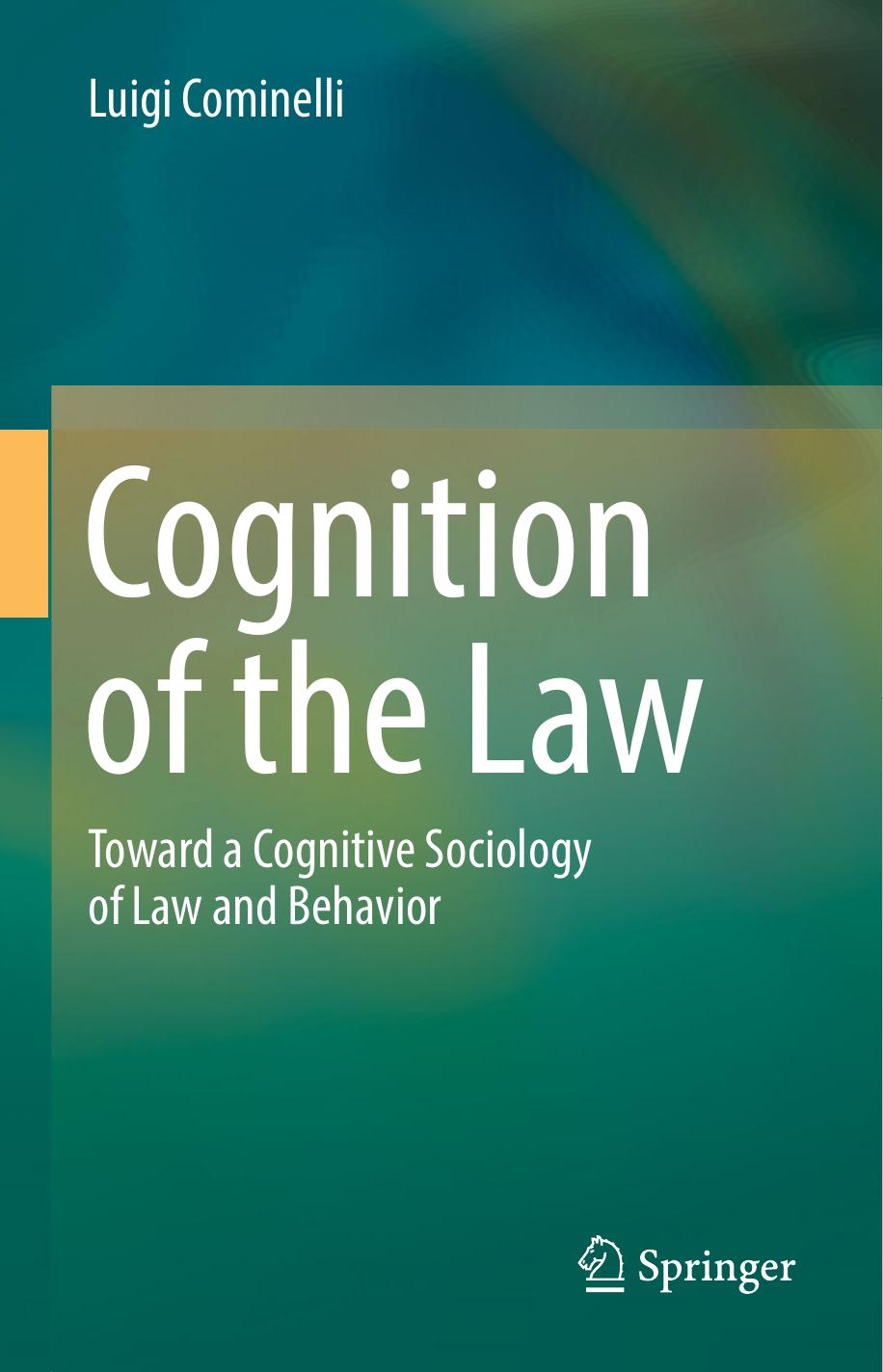Cognition of the Law by Luigi Cominelli

Author:Luigi Cominelli
Language: eng
Format: epub, pdf
Publisher: Springer International Publishing, Cham
3.4 Evolutionary Analysis of Legal Attitudes
Epigenetics, sociobiology, and the evolutionary paradigm can be applied to other disciplines (foremost among them evolutionary psychology and evolutionary biology, but also psychology and behavioral economics) to provide sociology with a new biological perspective on social behavior that the social sciences can no longer afford to ignore. The basic insight of modern evolutionism—developed almost simultaneously by Alfred Russel Wallace and Charles Darwin, the former in some minor works, the latter in the much more famous Origin of Species (Darwin 1859)—consists in explaining the evolution of living beings by locating its origin in the combined action of random variation and natural selection, where heritable individual traits mutate at random, and those that get selected achieve reproductive success, thereby passing on to the next generation (Stewart-Williams 2010, p. 27).
The first essay in which the evolutionary theory is sketched out in a comprehensive way (On the Tendency of Varieties to Depart Indefinitely from the Original Type) was sent to Darwin in 1858 by Wallace. Darwin had been working on the same themes for a decade: he had hesitated to publish his work because he had not yet managed to explain some inconsistencies—including, for example, extreme altruistic behavior, which until the discovery of inclusive fitness (Hamilton 1964a, b) could not be understood according to a purely evolutionary approach—but now he decided to quickly complete and publish On the Origin of Species.
In this section, I will focus specifically on law-informed social behavior, that is, on social behaviors based on legal norms. In fact, these social actions are profoundly influenced by our nature as evolutionarily oriented living beings. This aspect was previously argued with regard to psychological research on the sense of justice (Sect. 2.2). Our drives, biases, and instincts oriented to the basic functions of surviving, procuring food, and reproducing cannot be neglected even in this respect. Evolutionary analysis is effective as long as it is able to integrate with biological studies that identify the causal mechanisms underlying human behavior (Carbone and Cahn 2006, p. 291). The decoupling that morality and law have completed to emancipate from primary needs and impulses does not mean that the latter may be ignored, precisely because in this way we can have a better and complete understanding of the former. Any purely normativist attempt in this sense would be destined for disaster: it is unthinkable to structure a social organization that should fail to factor in the characteristics of its members or the “environmental and historical niche” in which it is located (Scherer 1992, p. 10).
A legal system that neglects the “biological foundation of humanity” ends up being disconnected from the subjects within its jurisdiction (Bohannan 1999, p. 11): such a system would become totally or largely ineffective. In establishing a parallel between the biological and the social sciences, Sampson (1983, p. 57) argues that if scientists want to understand how something works, they must also understand how this thing or phenomenon has come to be what it is. The body of discoveries and
Download
This site does not store any files on its server. We only index and link to content provided by other sites. Please contact the content providers to delete copyright contents if any and email us, we'll remove relevant links or contents immediately.
Rewire Your Anxious Brain by Catherine M. Pittman(17589)
Talking to Strangers by Malcolm Gladwell(11879)
The Art of Thinking Clearly by Rolf Dobelli(8842)
Mindhunter: Inside the FBI's Elite Serial Crime Unit by John E. Douglas & Mark Olshaker(7834)
Becoming Supernatural by Dr. Joe Dispenza(7107)
Change Your Questions, Change Your Life by Marilee Adams(6641)
The Road Less Traveled by M. Scott Peck(6635)
Nudge - Improving Decisions about Health, Wealth, and Happiness by Thaler Sunstein(6633)
The Lost Art of Listening by Michael P. Nichols(6474)
Enlightenment Now: The Case for Reason, Science, Humanism, and Progress by Steven Pinker(6406)
Win Bigly by Scott Adams(6312)
Mastermind: How to Think Like Sherlock Holmes by Maria Konnikova(6236)
The Way of Zen by Alan W. Watts(5800)
Daring Greatly by Brene Brown(5642)
Grit by Angela Duckworth(4738)
Big Magic: Creative Living Beyond Fear by Elizabeth Gilbert(4723)
Men In Love by Nancy Friday(4327)
Flow by Mihaly Csikszentmihalyi(4053)
The Four Tendencies by Gretchen Rubin(4024)
